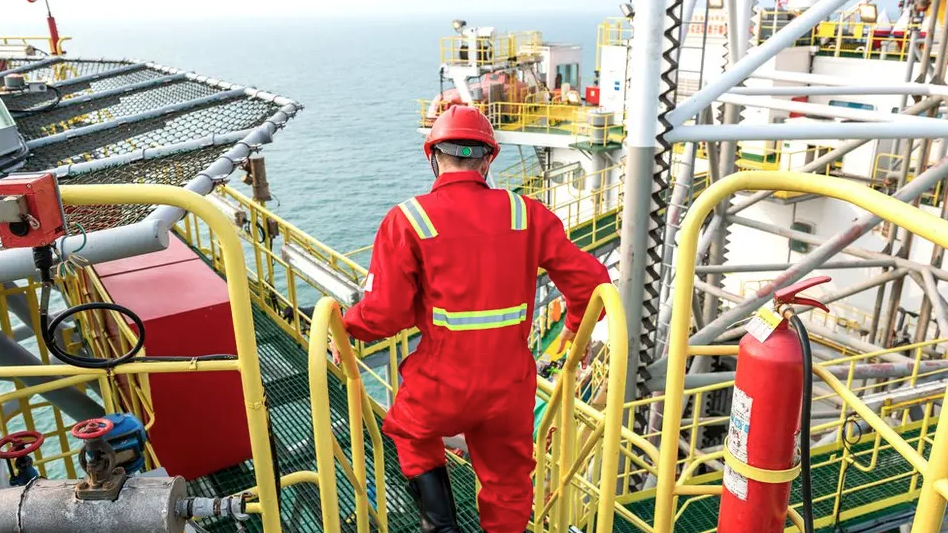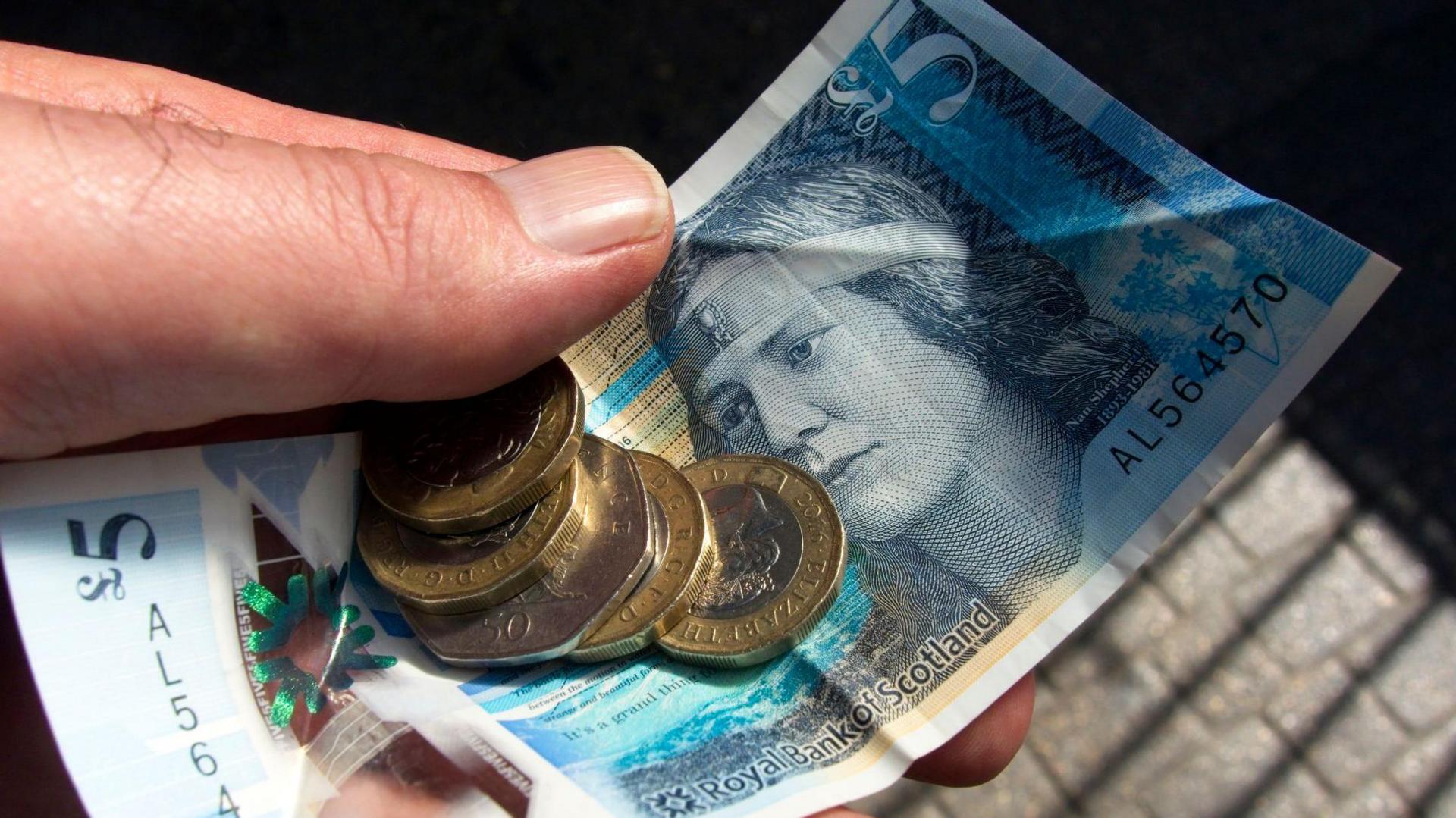Scottish public spending deficit grows as oil revenue drops again

Revenue from North Sea oil and gas has fallen for the second consecutive year
- Published
Scotland's public spending deficit has increased, with North Sea oil and gas revenue falling for the second year in a row, official figures show.
The latest annual Government Expenditure and Revenue Scotland (Gers) report looks at taxes raised from people and businesses in Scotland and government spending for and on behalf of Scotland.
It found the difference in 2024-25 was £26.2bn, which was up from £21.4bn in the previous financal year.
The amount of money spent on public services and benefits in Scotland last year (£21,192) was nearly £2,700 higher per person than it was for the UK as a whole (£18,523).
The total spending by Scottish, Westminster and local governments in Scotland - as well as a share of spending on shared provision such as defence and debt - came to £117.6bn.
All the revenue raised from Scots totalled £91.4bn - reflecting a reduction in tax revenue last year from oil and gas production.
As a share of all the output from the economy, that takes the deficit if Scotland had separate public finances to 11.6%, while the equivalent figure for the UK was 5.1%.
Scotland's Finance Secretary Shona Robison said decisions taken by ministers at Holyrood were "helping support sustainable public finances".
She said: "For the fourth year in a row, devolved revenues have grown faster than devolved expenditure.
"Scotland's public finances are better than many other parts of the UK, with the third highest revenue per person in the UK, behind only London and the South East."
Scottish Secretary Ian Murray said the Gers figures showed Scots benefit from higher public spending than the UK average - meaning "more money for schools, hospitals and policing, if the Scottish Parliament chooses to invest in those areas".
But he also claimed "people in Scotland will rightly expect to see better outcomes" for these higher spending levels.
Murray said: "These figures underline the collective economic strength of the United Kingdom and how Scotland benefits from the redistribution of wealth inside the UK.
"By sharing resources with each other across the UK, Scots benefit by £2,669 more per head in public spending than the UK average."
The Scottish Conservatives' finance spokesman Craig Hoy said the Gers figures highlighted the "huge, and rising, Union dividend".
He added: "If we lost that – as we would if the SNP achieved their goal of Scottish independence – it would have a catastrophic impact on the nation's finances."
The business group CBI Scotland described the further widening of the deficit as "disappointing news for firms and households alike".
The lobbying body's director, Michelle Ferguson, said it was "vital that both the Scottish and UK governments continue to back business through this difficult period".
She added: "This includes accelerating the development of green freeports, committing to infrastructure investment, improving digital connectivity, and reforming planning systems to unlock new investment, create better jobs, and secure sustainable long-term growth."
What is Gers?
Gers is a National Statistics publication and is prepared by Scottish government officials independently of ministers.
It estimates the amount of revenue raised through tax collected from people living in Scotland by both the Scottish and UK governments, and the amount that is spent by governments in and for Scotland.
That includes reserved spending such as the state pension, devolved spending such as the health service, and a share of spending that may take place in the rest of the UK or overseas on behalf of Scots, such as the armed forces and UK embassies.
The difference between revenue and spending is called the "net fiscal balance" - commonly referred to as the deficit.
Related topics
- Published13 August
